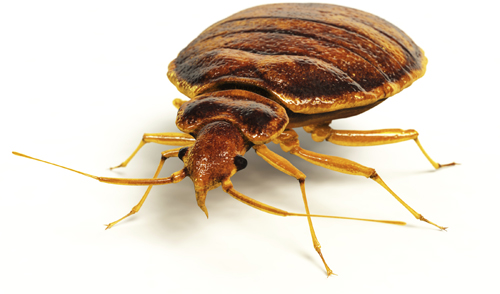King-size Bed Insect Exterminator Cincinnati: Pro Bug Solutions
Wiki Article
Sorts Of Bug Control: Which Method Is Right for Your Problem?
When confronted with a pest invasion, the option of a proper technique for bug control is crucial in efficiently managing the situation. From chemical treatments to organic services, there exists a range of strategies that can be utilized to address various kinds of insects. Each method includes its own collection of factors to consider and advantages, making the decision-making procedure a nuanced one. Understanding the subtleties of each method and reviewing their compatibility with the details insect infestation at hand is crucial for attaining lasting success in parasite management. By discovering the numerous types of bug control methods readily available, individuals can make enlightened choices customized to their one-of-a-kind situations, ensuring an extra sustainable and reliable outcome in bug elimination.Chemical Bug Control
Chemical pest control entails the use of synthetic or normally acquired chemicals to take care of and eradicate pest populaces properly. This approach is frequently made use of in agriculture, forestry, and household settings to combat a vast array of pests, including rodents, weeds, and insects. Making use of chemical pesticides can give quick and targeted remedies to pest problems, making it a prominent selection for several people and organizations.One of the essential advantages of chemical bug control is its capability to swiftly remove pests, lowering the risk of damage to plants, home, and human health and wellness. By utilizing certain chemicals that target certain insects, this technique can effectively control infestations while reducing harm to helpful microorganisms and the atmosphere when applied properly.
Nevertheless, making use of chemical parasite control likewise elevates concerns about potential adverse effects on non-target varieties, water resources, and human health. It is important to follow safety and security guidelines, use chemicals properly, and consider alternate pest control methods to lessen these dangers and make sure sustainable pest administration methods.
Biological Parasite Control
Biological insect control, likewise recognized as biocontrol, utilizes living organisms to take care of and lower bug populaces normally. This method harnesses the power of nature to regulate pests without the need for artificial chemicals. Biocontrol can include the intro of natural opponents of the pest varieties, such as parasites, killers, or microorganisms, to suppress bug populaces. By making use of the parasite's natural predators or virus, biological pest control supplies a sustainable and ecologically pleasant remedy to pest monitoring.
Mechanical Parasite Control
Utilizing hands-on and physical methods to take care of pest populaces, mechanical pest control supplies an alternate method that does not rely upon making use of living microorganisms or artificial chemicals. This method entails using barriers, traps, or other tools to physically deter or remove parasites. By blocking bug access factors or setting up catches to capture them, mechanical bug control can effectively reduce invasions without presenting chemicals into the environment.One common instance of mechanical parasite control is making use of mesh displays on doors and windows to avoid bugs from going into structures. This simple yet effective technique works as a physical barrier, maintaining parasites out while enabling for appropriate ventilation. Additionally, gadgets like mousetraps, fly swatters, and ultrasonic repellents fall under the mechanical insect control classification.
While mechanical insect control techniques can be labor-intensive and need regular tracking and upkeep, they provide a sustainable and ecologically friendly option for handling parasite invasions. By combining various mechanical strategies, homeowner can develop a detailed parasite control strategy that minimizes dependence on chemical pesticides.
Physical Parasite Control

Some common physical insect control methods include using barriers such as webs or displays to avoid insect access, traps to record and remove insects, and hand-picking to physically eliminate pests from plants or structures. Additionally, techniques like warmth therapies can be utilized to regulate pests like bed pests by increasing the Learn More temperature to degrees that are deadly to the pests.
Physical parasite control is particularly beneficial in incorporated bug administration (IPM) approaches, where several parasite control approaches are incorporated for effective parasite monitoring while decreasing the use of chemicals. By utilizing physical insect control strategies, people can successfully deal with bug problems with very little environmental impact.
Integrated Pest Monitoring
When implementing physical insect control techniques as part of pest management strategies, Integrated Bug Administration (IPM) becomes an extensive approach that leverages numerous methods to successfully control pest populations. IPM focuses on lasting prevention of parasites via a mix of biological, cultural, physical, and chemical devices tailored to specific bug problems. By incorporating several control tactics, IPM intends to reduce the threats related to insects while additionally reducing dependence on chemical services.One key element of IPM is the emphasis on tracking and assessing pest populations to establish the most ideal control techniques. This proactive technique enables very early treatment and targeted techniques, bring about a lot more reliable insect monitoring. Additionally, IPM advertises eco-friendly techniques by prioritizing non-chemical control techniques and just using pesticides as a last option.
Conclusion

By using the insect's natural predators or get more pathogens, biological parasite control provides a environmentally pleasant and sustainable service to pest monitoring. - Kings pest control cincinnati oh
Utilizing manual and physical approaches to take care of insect populaces, mechanical pest control uses a different method that does not count on the use of living organisms or synthetic chemicals.An efficient strategy to handling bug populaces without relying on chemical or biological approaches involves the use of physical bug control strategies.When executing physical bug control approaches as part of insect administration approaches, Integrated Parasite Management (IPM) emerges as a detailed strategy that leverages various techniques to efficiently manage pest populaces. Chemical insect control entails the usage of chemicals, organic pest control utilizes natural predators, mechanical insect control entails physical barriers, physical pest control includes trapping or removing insects, and integrated insect administration integrates several techniques for an all natural strategy to pest control.
Report this wiki page